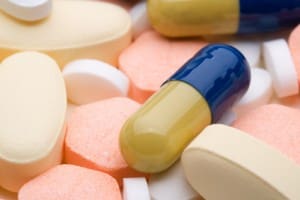I spend a lot of time talking to families determined to find help for a loved one who is addicted to drugs. Inevitably the conversation includes the questions: “Aren’t there some medications that will make them stop?” “I’ve heard about Suboxone, is that the answer?” “Will Vivitrol cure my son’s addiction?”
How wonderful it would be if there was a medication that would stop all cravings, or change the brain in ways that reversed the patterns of addiction. However, these “silver bullet” ideas are largely based on a false understanding of the disease of addiction, what triggers the use of drugs, and what is necessary to achieve lasting recovery.
 The two most common medications for opioid addiction are the “agonist” treatments: Methadone and Buprenorphine (brand name is Suboxone). These oral medications contain an opioid that suppresses withdrawal symptoms, weakens cravings, and blocks the effects of heroin, Oxycontin and other drugs that are generally referred to as Opiates. The theory is that if you take these drugs you will lose the desire to use illegal drugs.
The two most common medications for opioid addiction are the “agonist” treatments: Methadone and Buprenorphine (brand name is Suboxone). These oral medications contain an opioid that suppresses withdrawal symptoms, weakens cravings, and blocks the effects of heroin, Oxycontin and other drugs that are generally referred to as Opiates. The theory is that if you take these drugs you will lose the desire to use illegal drugs.
A newer, different, non-addictive medication is gaining popularity. Naltrexone (brand name Vivitrol) is an “antagonist” treatment because it blocks the opioid receptors in the brain and prevents an individual from feeling the effects of drugs such as heroin or Vicodin. Available as a pill or a monthly injection, this medication is designed to remove the incentive to use. In time, it is argued, with counseling and other forms of treatment and recovery support, the addicted person will learn how to avoid drugs in the future.
Suboxone, Methadone, Naltrexone are intended to keep someone from using drugs and enable them to establish recovery. However, this is not what happens in far too many cases.
Overcoming addiction, and establishing a strong recovery, requires learning how to live life differently. The addicted person has continually turned to their drug of choice to manage their emotions and control their response to life’s events. The addict’s actions are predictable: when you are stressed you use; when you are sad or angry you use; when you want to feel better and celebrate you use. Rather than dealing with life as it comes, drugs are used to manage and change feelings.
 Lasting recovery requires a combination of two actions: first, creating a life where it is easier not to use (e.g. less stress, less conflict) and secondly, effectively managing the emotions (e.g. anger, sadness, low self-esteem) that motivate the desire to use. Change has to happen inside and outside. One of the popular slogans for recovery is that “nothing changes if nothing changes.”
Lasting recovery requires a combination of two actions: first, creating a life where it is easier not to use (e.g. less stress, less conflict) and secondly, effectively managing the emotions (e.g. anger, sadness, low self-esteem) that motivate the desire to use. Change has to happen inside and outside. One of the popular slogans for recovery is that “nothing changes if nothing changes.”
The greatest problem with Medication-Assisted Treatment (MAT) using Methadone, Suboxone, and Naltrexone, is that they become substitutes for the work of recovery. While an individual is taking the medication they may not be abusing other drugs, but their commitment to the actions necessary for recovery is seldom more than lukewarm. Intensive counseling, attending meetings, getting a sponsor, building a support network – any of the steps that may be necessary to change one’s life and live it better – can be set aside.
All of the major organizations that advocate for drug and alcohol addiction (ASAM, SAMHSA, NIDA) emphasize the importance of counseling and other support services for lasting recovery. In fact, when the FDA first approved Suboxone in 2002, it was suggested that it should be used for only a short time to reduce cravings while the individual participated in intensive outpatient activities. What we see today, however, is people being on Suboxone and Methadone for years, with minimal or no recovery treatment.
Research does not provide encouraging results for people who seek lasting recovery through the use of medications. Studies show that a large majority (70% – 90%) of the people using Suboxone and Methadone relapse very quickly after discontinuing the medication1. While the FDA has always advocated psychosocial treatment for those using these medications, most programs are weak, and fall far short of the intensive treatment that has proven successful in addiction recovery2.
Several government sponsored studies suggest that the use of medications to treat addiction should be seen as resignation that recovery is not possible, and the medications should be taken for the remainder of a person’s life3. This judgment implies that recovery is too hard, too much work, or the individual too damaged – and the effort to learn how to live life differently should be abandoned. I concede that there are chronic relapsers, with little motivation, who may find a lifetime of medication as the only way to stay alive. But surely this approach to treatment must be the last resort for the addicted person, when all other efforts have failed.
Every day I hear from graduates of our program who are living clean, happy lives, free from the bondage of addiction. I believe they show us the preferred path forward. We need to help people break free of dependence on drugs and discover all that life has to offer. There are no medications that provide an effective substitute.
Notes:
1.Weiss, R.D., Potter, J.S., Fiellin, D.A., Byrne, M., Connery, H.S., Dickinson, W., Gardin, J., Griffin, M.L., Gourevitch, M.N., Haller, D.L., Hasson, A.L., Huang, Z., Jacobs, P., Kosinski, A.S., Lindblad, R., McCance-Katz, E.F., Provost, S.E., Selzer, .J, Somoza, E.C., Sonne, S.C., Ling, W. (2011). Adjunctive counseling during brief and extended buprenorphine-naloxone treatment for prescription opioid dependence: a 2-phase randomized controlled trial. Arch Gen Psychiatry, Dec;68(12):1238-46.
2. The use of Naltrexone and Vivitrol in addiction treatment is relatively new and the available research is limited. Vivitrol was approved for use in opiate treatment in 2012 and the high cost — $800 – $1200 per injection – has restricted trial.
3 – a. Calsyn, D.A., Malcy, J.A., & Saxon, A.J. (2006). Slow tapering from methadone maintenance in a program encouraging indefinite maintenance [Electronic Version]. Journal of Substance Abuse Treatment. 30 (2), 159-163.
3-b. Center for Substance Abuse Treatment. Medication-Assisted Treatment for Opioid Addiction in Opioid Treatment Programs. Rockville (MD): Substance Abuse and Mental Health Services Administration (US); 2005. (Treatment Improvement Protocol (TIP) Series, No. 43.) Available at http://www.ncbi.nlm.nih.gov/books/NBK64164


